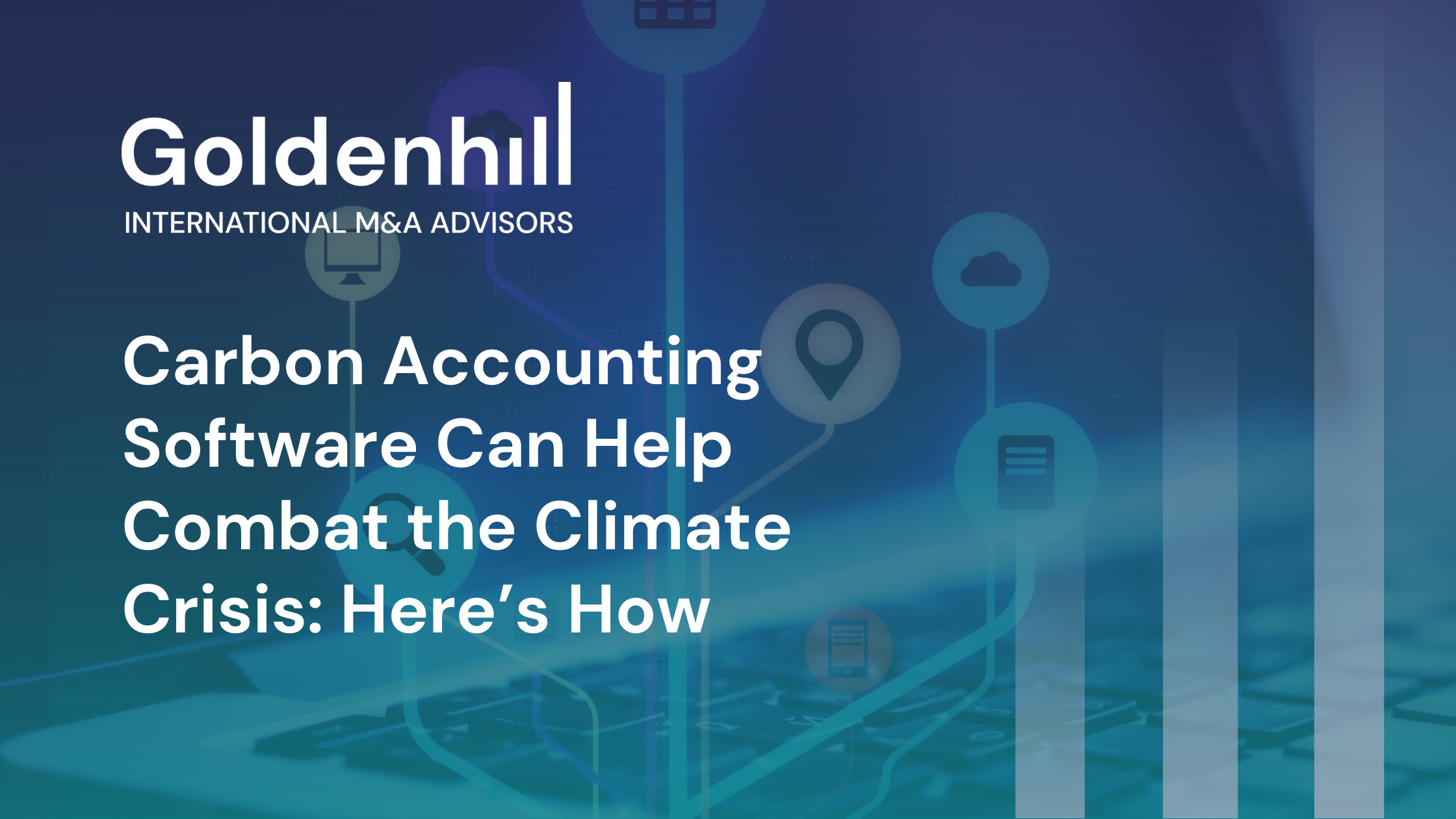
Carbon Accounting Software Can Help Combat the Climate Crisis: Here’s How
As government ministers, politicians, and leaders from around the world met to get climate talks over the line, at the annual United Nations Climate Change conference in Egypt (COP27), many business owners are now keen to push their own climate agendas, by investing in advanced data, software, and tools.
This is also in line with the Paris Agreement’s requirement to reduce global GHG emissions by 50%. Consequently, today’s shareholders, investors, regulators, and business leaders are keen to identify and prioritise actions to reduce their carbon emissions.
In this article, we look at how carbon accounting software revolutionising the Environmental, Social and Governance (ESG) sector and is becoming an essential practice for businesses, the financial sector and government bodies as the world transitions to a net-zero economy.
Carbon Capture, Usage and Storage
Put simply, carbon accounting helps organisations stay focused on achieving their targets to reduce GHG emissions and gain the strategic advantages of GHG emissions reductions. With the right accounting solution, organisations can begin to regulate their output of greenhouse gases through the process of decarbonisation.
The first step is to measure carbon emissions and can be done by following the carbon reporting process, which involves the collection of GHG data. This data is then measured against internationally recognised carbon accounting standards, such as the ISO 14064-1. Organisations can then share their progress with stakeholders like customers, investors, and employees, while also reporting their emissions by law.
Carbon credentials demonstrate an organisation’s legitimate approach to the climate crisis. Carbon management software provides a baseline for benchmarking future performance and just like financial accounting, it quantifies the impact of an organisations business activities – instead of financial impact, however, it measures climate impact.
How Carbon Accounting Software Works
Carbon accounting platforms empowers organisations to address the environmental components of ESG, while meeting current reporting requirements and planning for the future.
It enables organisations to report across diversity, climate, workforce safety, supply chains, third-party risk, cyber and more, to support GHG goal setting. Automation software helps streamline collection, verification, analysis, and reporting of company-wide sustainability performance indicators (KPIs), while offering Scope 1, 2 and 3 carbon emissions tracking to meet reporting requirements.
William Berrington, Goldenhill International Partner, and M&A Advisor in the ESG sector says:
“We are seeing companies moving towards more integrated ways of incorporating sustainability into every step of the business lifecycle, to meet sustainability regulatory requirements and gain the strategic advantages of carbon emissions reductions.”
Using Blockchain Technology to Improve Traceability
Service providers in the carbon footprint management market are using blockchain technology to track and analyse energy consumption data in real-time.
Recently, blockchain technology has been breaking new ground on climate risk and performance, by providing trusted reporting capabilities that comply with emerging regulations. It does this by integrating an organisation’s existing systems, including IoT sensors with external data sources to establish a trail of emissions and offsets.
With blockchain, all environmental data can be stored safely and securely, as part of an organisation’s climate risk portfolio, therefore offering a precise and verifiable trail of carbon emissions against offsets and renewable energy consumption.
Providing Third-Party Proof of Decarbonization
The right carbon accounting software will provide proof of sustainability performance, particularly for companies that are required to submit performance data to governing bodies, rating agencies, investors, regulators, or other stakeholders.
It will provide a detailed insight into energy and emissions data, hourly energy attributions, energy procurement and generation data and decarbonization metrics, which will soon become a requirement for compliance, mandated government actions and other corporate sustainability rules.
Carbon Accounting Software – M&A and Investment
With the global carbon accounting market share expected to reach $11.5 billion in 2025, many organisations across the world are realising the positive impact investing in carbon accounting software will have long-term.
There has been a substantial number of acquisitions of carbon accounting software vendors over the past 12 months or so. GRC vendors such as Ideagen, Diligent and OneTrust have acquired Process Map, Accuvio and Planetly respectively. Also accounting software vendor Sage recently announced that it has acquired Spheris and IBM acquired Envizi.
In addition, there is increasing interest in the sector from Stock Exchanges, Ratings agencies, EHS vendors, ERP vendors, Certification companies, data vendors and supply chain vendors
There have also been a number of high value investment rounds involving companies such as Sweep, Normative, Persefoni, Plan A and SINAI raising in some cases $100m of funding, which is likely going to make it harder to compete with them.
Next Steps
For organisations in many parts of the world, sustainability reporting is now becoming a legal requirement. The EU for example, is in the process of expanding the current legislation to cover 50,000 companies based in or operating in the EU with plans to reach climate neutrality by 2050, according to the EU Climate Law.
While the UK Climate Change Act also mandates that large companies report their emissions and plans to reduce greenhouse gas emissions by at least 100% of 1990 levels by 2050.
Are you a carbon accounting software provider looking to join forces with another company? In which case please get in touch with one of our specialist M&A Partners, to discuss your plans and market conditions.
Author: William Berrington
Partner
Highly experienced M&A advisor with a particular emphasis on ESG and HR Technology globally; assignments include working with leading businesses in ESG (Environmental, Social and Governance) software and data and HR Technology (HRTech).
William has advised on technology sector M&A transactions in more than 12 countries, working on transactions on the sell-side and buy-side. A Chartered Accountant by background, he held corporate development roles at several blue-chip technology companies and also worked for a private markets firm before joining Goldenhill.
If you are an owner or senior executive of a technology business interested in discussing how M&A could help you accomplish your objectives – please get in touch.
